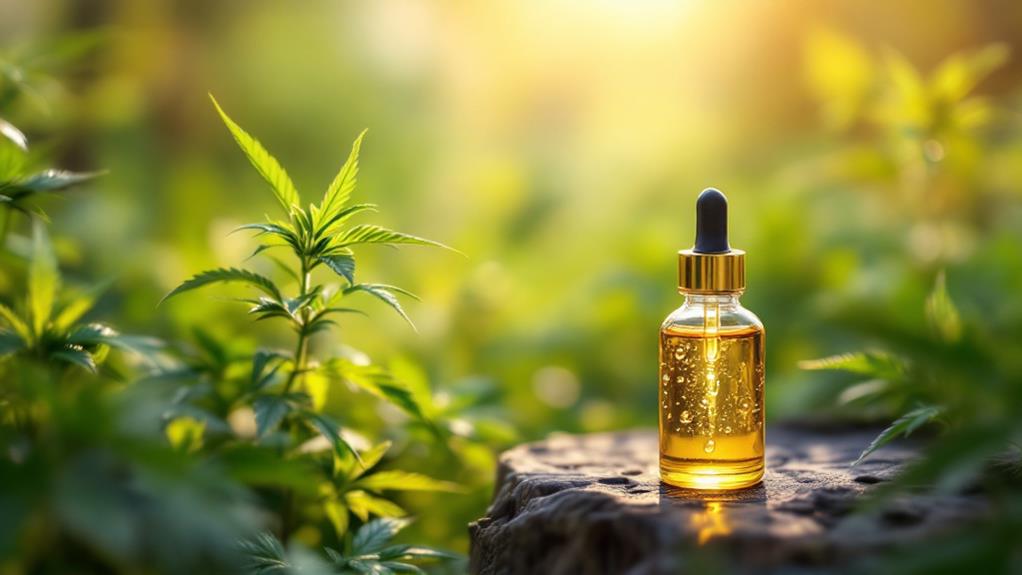A Complete Guide to Magnolia Bark Extract: Benefits and Uses

Uncover the multifaceted benefits of magnolia bark extract, rooted in over 2,500 years of traditional Chinese and Japanese medicine. This extract, derived from *Magnolia officinalis*, is known for its potential to ease anxiety, reduce inflammation, and support digestive health. Key compounds like magnolol and honokiol offer antioxidant and anticancer properties. Typically taken in doses between 200 to 400 mg daily, it's available in capsules, powders, and tinctures. It's generally safe for short-term use, but consultation with a healthcare professional is wise. Stay tuned to investigate its historical context and further uses in detail.
Historical Background
While exploring the historical background of magnolia bark, you'll find its roots deeply embedded in traditional Chinese and Japanese medicine, dating back over 2,500 years. Derived primarily from *Magnolia officinalis*, this bark has been a staple in herbal medicine, revered for its capacity to treat a range of ailments. Its historical use is initially noted around 100 A.D. in the *Shennong Bencao Jing*, establishing its significance in ancient therapeutic practices. Throughout history, magnolia has been used to address issues like anxiety and gastrointestinal disorders, showcasing its versatility and enduring relevance.
Monks in the 7th century contributed to its cultivation, particularly valuing its therapeutic purposes for depression and muscle pain. This highlights magnolia's longstanding role in supporting mental health. Moreover, it is a key component in traditional herbal formulas such as Banxia Houpo Tang, which continues to be used in modern clinical settings. Magnolia's influence even extends beyond Asia, finding a place in the American Pharmacopeia as a bitter tonic and for its antimalarial properties. This global recognition underscores its extensive historical use and confirms its therapeutic potential across cultures and centuries.
Key Chemical Components
Magnolia bark's potency lies in its rich array of chemical compounds, particularly magnolol and honokiol. These two compounds, classified as neolignans and polyphenols, are the primary active constituents of Magnolia Bark, contributing to its impressive medicinal properties. Magnolol is known for its anti-inflammatory and antioxidant capabilities, making it a valuable element in diverse therapeutic applications. Meanwhile, honokiol offers significant anticancer potential by inducing apoptosis in cancer cells and influencing key signaling pathways linked to tumor growth.
Here's what you should know about these powerful components:
- Magnolol: Exhibits anti-inflammatory, antioxidant, and neuroprotective properties.
- Honokiol: Induces apoptosis in cancer cells and modulates tumor growth pathways.
- Antimicrobial Effects: Both compounds combat bacteria, viruses, and fungi.
- Therapeutic Applications: Their properties make them valuable for numerous health-related uses.
- Chemical Variability: Factors like species, origin, and harvesting methods affect their efficacy.
The chemical composition of magnolia bark can vary, impacting its general effectiveness and therapeutic potential. This variability underscores the importance of understanding the source and preparation methods when seeking out Magnolia Bark for its health benefits.
Health Benefits

Revealing the potential of magnolia bark extract uncovers a wealth of health benefits primarily rooted in its rich polyphenolic compounds, magnolol and honokiol. These compounds exhibit remarkable anti-inflammatory and antioxidant properties, which can help manage chronic conditions like diabetes and heart disease. Furthermore, magnolia bark benefits include reducing stress levels and alleviating anxiety. Studies show that users experience mood improvements and lower cortisol levels, making it a valuable ally for mental well-being.
Moreover, if you're struggling with sleep, magnolia bark extract might be your answer. Magnolol can reduce sleep onset time and improve sleep quality, promoting better overall rest. In the domain of cancer research, honokiol has shown potential anticancer properties, as it can inhibit tumor growth and induce apoptosis in cancer cell lines.
Magnolia bark extract also supports digestive health by promoting beneficial gut bacteria, which can improve your complete digestive system. If weight management is a concern, this extract may help by reducing stress-induced overeating. Embracing these magnolia bark benefits connects you to its roots in traditional medicine, offering a natural approach to improving your complete health and well-being.
Recommended Dosage
Understanding how to harness the health benefits of magnolia bark extract effectively involves knowing the right dosage. Typically, the recommended dosage ranges from 200 to 400 mg per day, although some conditions might benefit from doses up to 800 mg. You should always consult with a healthcare provider before starting supplementation to tailor the dosage to your specific health conditions and ascertain it doesn't interfere with other medications.
Here's what to take into account when determining your dosage:
- Forms: Magnolia bark extract comes in capsules, powders, and tinctures, offering flexibility for your preferred method of intake.
- Daily dosing: Consistent daily dosing is key, as it may take several weeks to notice the effects.
- Quality and concentration: Choose supplements from reputable brands to guarantee accurate dosing and effective dosages.
- Health conditions: Discuss your specific health conditions with a healthcare provider to determine the most suitable dosage.
- Supplementation: Regular supplementation in the correct doses optimizes the extract's potential benefits.
Possible Side Effects

You might find that magnolia bark extract is generally well-tolerated, but it's vital to be aware of possible side effects. Some individuals may experience drowsiness, especially if you're combining it with sedatives or anti-anxiety medications. This interaction can amplify the sedative effects, leading to increased drowsiness. Moreover, gastrointestinal discomfort is another potential side effect, which could manifest as an upset stomach or nausea.
Though rare, allergic reactions can occur, including skin rashes when using topical applications. If you notice any adverse effects, it's prudent to discontinue use and seek consultation with a healthcare provider. They can help determine if magnolia bark extract is suitable for you, given your individual health conditions and potential interactions with medications you may be taking.
Long-term safety data on magnolia bark extract is limited, so it's important to exercise caution with prolonged use. Regular monitoring for adverse effects is advisable, especially since the benefits may take several weeks to become noticeable. By staying vigilant and consulting a healthcare professional, you can better navigate any side effects and make informed decisions about using magnolia bark extract.
Safety Precautions
When considering the use of magnolia bark extract, it's crucial to prioritize safety precautions to guarantee your well-being. While the extract is possibly safe for oral use up to six weeks, its safety for longer use hasn't been thoroughly studied. Pregnant individuals should avoid it due to the risk of uterine contractions, and breastfeeding safety is still undetermined. To make certain you're using magnolia bark extract safely, keep these points in mind:
- Consult healthcare professionals: Always talk to your doctor, especially if you're taking other medications or have underlying health conditions.
- Monitor for adverse effects: Be aware of potential side effects like gastrointestinal discomfort and allergic reactions. Stop use if they occur.
- Avoid during pregnancy and breastfeeding: The risk of uterine contractions and unknown breastfeeding safety make it unsuitable.
- Be cautious with sedative medications: Combining them with magnolia bark extract could increase drowsiness and breathing problems.
- Limit use duration: Stick to a six-week maximum unless advised otherwise by a healthcare professional.




